Featured Panoramic Photo Above:
Classic Charles Conlon photo of Ty Cobb sliding into Jimmy Austin
Baseball History Comes Alive Now Ranked As a Top Five Website by Feedspot Among All Baseball History Websites and Blogs!
(Check out Feedspot's list of the Top 35 Baseball History websites and blogs)
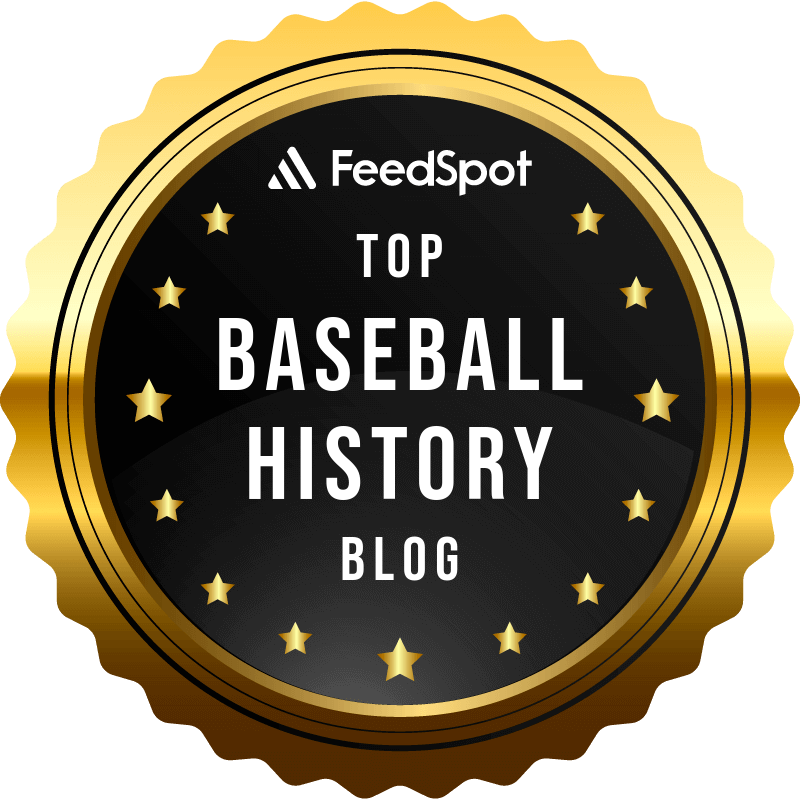
Guest Submissions from Our Readers Always Welcome! Click for details
Scroll Down to Read Today’s Essay
Subscribe to Baseball History Comes Alive for automatic updates. As a Free Bonus, you’ll get instant access to my Special Report: Gary’s Handy Dandy World Series Reference Guide!
And no, I had never heard of Bill Moisan either…but, as I’ve said many times, anyone who makes it to the major leagues is special in our eyes.
Today I’ve got something a bit different. I was recently contacted by George Biron, a major league scout for 33 years. George wrote an article that first appeared in the May 2022 Manchester Union Leader Memorial Day issue. In his essay, George highlights the career of Bill Moisan, who had a “cup of coffee” with the Cubs in 1953, Ernie Banks’s rookie season. Like other ballplayers we’ve featured, including Cecil Travis and Lou Brissie, Bill Moisan was a genuine World War II hero. As George told me, “It’s an amazing story of determination and perseverance and I felt it should be told to preserve the memory of a forgotten hero.”
Well, George, you came to the right place. I’m more than happy to share this story about someone who would not give up on his dreams, even in the face of overwhelming odds. I hope you’ll take a couple minutes to read the inspirational story of baseball war hero, Bill Moisan.
In the featured photo, we see Bill Moisan on the far right, along with 1953 Cub teammates Bob Talbot, Gene Baker, manager Phil Cavarretta, and rookie Ernie Banks. -GL
The Cubs’ Bill Moisan:
The Inspiring Story of a Genuine Baseball War Hero!
Like many young players, I dreamed of playing in the big Leagues.
Growing up in the 1950s, in Manchester, I had the good fortune of living within 300 yards of Athletic Field, the Four Diamonds, Central Little League, and Sheridan-Emmett Park. There, every boy had the opportunity of honing his baseball skills by playing sandlot ball. That is how we spent our summers. Baseball was a big part of my life then, and it has remained so to this day.
Bill Moisan also had the dream of playing in the big leagues, but he would not have had the chance at a professional baseball career today. A highly decorated hero in the Army from the Greatest Generation, he would have been celebrated for his service to his country. But to be recognized as a hero in two very different walks of life? Not a chance. Not now.
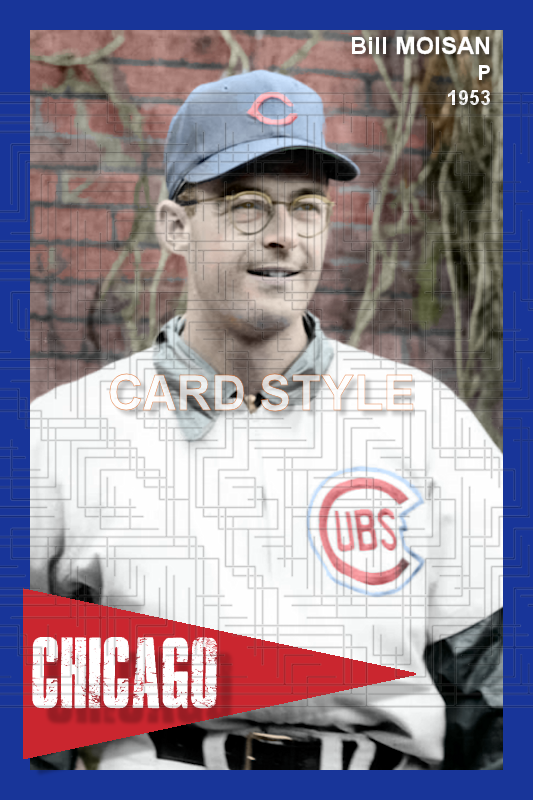
In the first few years following World War II, there were plenty of opportunities for a young man — even a 20-year-old veteran returning from the battlefield in Europe — to pursue a career in pro ball. There were more than 450 minor-league teams back then (although just 16 major-league clubs) that needed ballplayers.
Baseball’s unilateral and arguably senseless decision in 2020 to contract the minors, eliminating 40-odd teams, abruptly ended the budding careers of hundreds of aspiring pro ballplayers, and means far fewer opportunities for the Bill Moisans of today, leaving lifelong dreams even farther beyond their reach to realize.
Bill Moisan was never a bona fide baseball star. But he survived the war to get a chance to play the game he loved, and he played it well enough to have that proverbial “cup of coffee” in the majors. And when his own professional playing career was over, he went back home to play semi-pro ball and teach the game to the next generation of dreamers.
Bill Moisan was born in Bradford, Mass., on July 30, 1925, and grew up in Newton, New Hampshire. Every town of reasonable size had sandlot, or semi-pro, ball clubs in that era. Major league clubs scouted these town teams, looking for diamonds in the rough to sign to minor-league contracts. Moisan, then a first baseman with a lively bat, set out to follow that well-worn path.
However, the war interrupted his promising baseball career, and in 1943 the 18-year-old Moisan entered the U.S. Army and went to Europe with Company G of the 398th Infantry Division. In fierce fighting around Bad Friedrichshall, Germany, PFC Bill Moisan distinguished himself in combat and was awarded the Silver Star, the nation’s third-highest medal for valor.
Moisan was captured during the battle and forced to brutally march with fellow prisoners of war for 32 days from Germany into Austria, an arduous trek that left him with frozen feet while his weight plummeted from 185 to 95 pounds. He returned home with a Purple Heart and Bronze Star in addition to his other medals and damaged feet that threatened to end his promising baseball career.
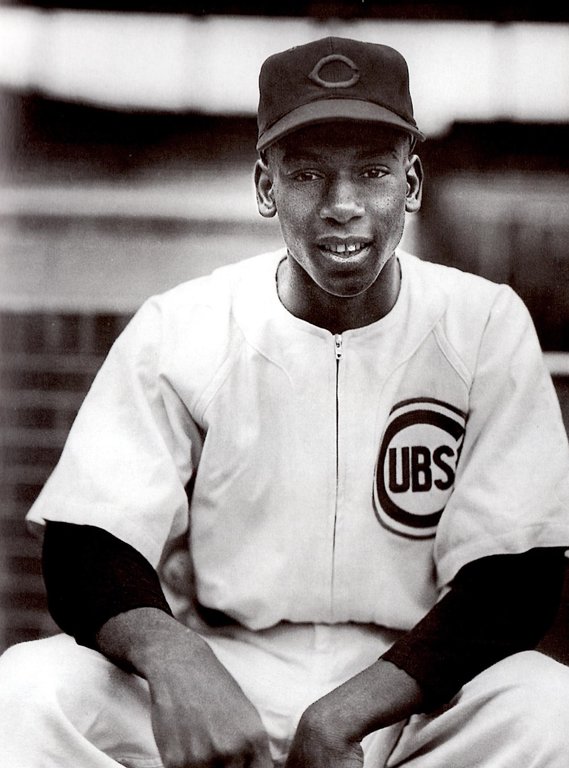
Signed by the Chicago Cubs after his return, in the spring of 1946 Moisan quickly realized his feet would not allow him to return to his normal position, first base. Fearing he would be released, he knew how to throw the knuckleball and asked the Cubs if he could try pitching.
The club agreed, and he capitalized on his second chance, compiling a 15-12 record with a 3.11 ERA between Class D Lockport and Class B Shelby that summer. He could still swing a pretty good bat, and was sometimes utilized as a pinch hitter during his minor-league career.
By 1950, Moisan was pitching in Triple-A and posting a 12-9 record with a 3.74 ERA at Springfield. With minor-league team jobs always scarce, Moisan spent the next three seasons in Class AAA dividing his time between starting and relieving. Despite a career-best 3.03 ERA in 1953, Moisan’s record was only 10-11. The Cubs were impressed enough to call him up in September.
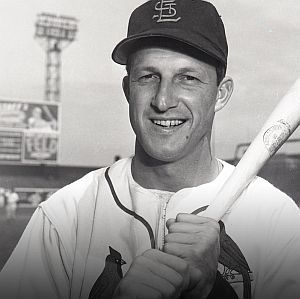
The Cubs were a bad team in 1953, finishing the year with a 65-89 record. Bill Moisan made his major-league debut in relief against the Philadelphia Phillies on September 17 at Wrigley Field. He pitched two innings and was charged with three runs (two earned) in a 16-4 Chicago loss. Three days later, with the Cubs losing 11-6 to a good Cardinals team in St. Louis, Moisan mopped up and pitched a perfect eighth inning that included striking out future Hall of Famer Stan Musial. It would be one of only 32 strikeouts in 593 at-bats for Musial, who would hit .337 with 30 homers and 113 RBIs that summer.
Moisan pitched two more years in the minors, ending his minor-league career with a 98-96 record and 3.78 ERA in 326 games, according to the best available sources, completing 100 of his 135 starts with 13 shutouts. As a hitter, he compiled a .222 batting average with 11 homers and 74 RBIs. Overcoming astronomical odds, Bill Moisan was able to live out not one, but two common boyhood fantasies: war hero and major league ball player.
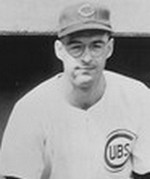
Returning home to New Hampshire after the 1955 season, Moisan went back to his baseball roots, playing semi-pro ball for his town team in Raymond, and teaching the finer points of the game to youngsters. I was among those wide-eyed boys who was influenced by Bill Moisan’s professionalism. I remember Moisan playing for Raymond for the semi-pro championship at Athletic Field in Manchester. I was there to be a bat boy, and for my efforts, I received a cracked bat and a few baseballs after the game.
For young players, Bill Moisan gave hope to every kid who ever played the game…and most importantly, helped to spread the joy and love for the game. What made baseball the national pastime was the proliferation of the town teams in the early 20th century. These teams that were formed throughout the country gave every community a joyful sense of pride.
Moisan worked as the nuclear materials manager at the Portsmouth Naval Shipyard when he wasn’t playing and teaching the great American game. He passed away at the age of 84 in Brentwood, New Hampshire on April 9, 2010.
George Biron
George Biron’s resume includes a four-year career at Keene State College (the final two years as captain), head varsity baseball coach at Manchester Central, big league instructor and longtime scout for the Montreal Expos, Philadelphia Phillies, Cleveland Indians, and Anaheim Angels. He is a KSC Hall of Famer and has won many scouting awards, including the Bill Bassetti Memorial Award winner given by the New York Pro Scouts Association. Biron lives in Townsend, Mass.
Subscribe to our website, Baseball History Comes Alive with over 1400 fully categorized baseball essays and photo galleries, now surpassing the one million hits mark with 1,137,000 hits and over 950 subscribers
Information: Article from May 2022 Manchester Union Leader, by George Biron
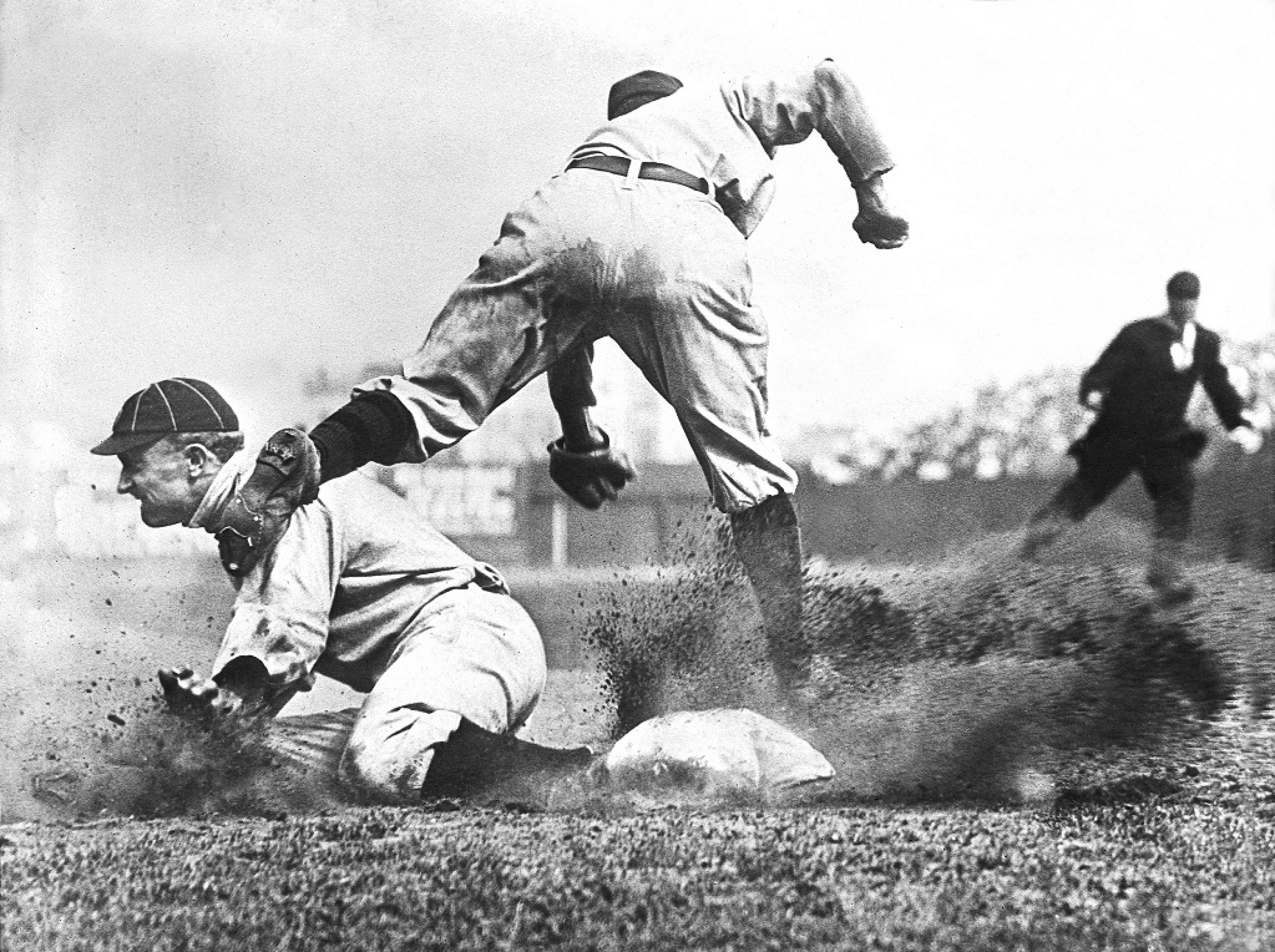
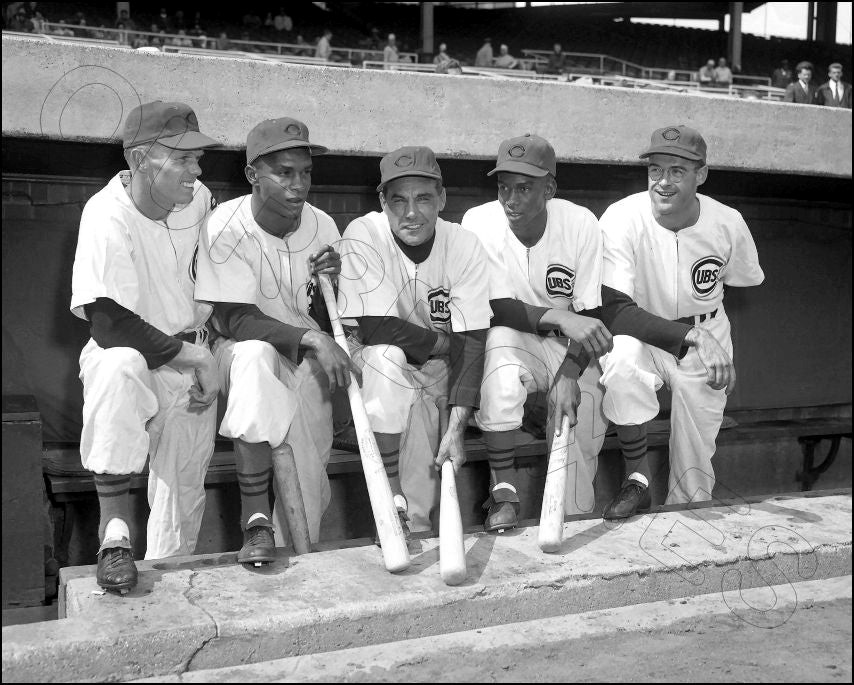

Very interesting article by George. I remember the story when it was first published in the MUL. I live two towns over from you, George, in Milford, NH.
This area has a bevy of baseball history. “Doc” Adams, a contemporary of Alexander Cartwright and had much to do with setting the basic dimensions of the baseball diamond was born in Mont Vernon, NH, two towns over in a different direction from me.
Pat Moran, Manager of the Cincinnati Reds in the ill-fated Black Sox World Series was from Fitchburg, MA, a couple of towns over from where George lives.
Phenomenal Smith, who I did an essay for Gary a couple of years ago, was a pitcher in the 1880’s and who is credited with discovering Christy Matthewson made a career as a police officer in Manchester,NH and a manager in the minor league circuit in New England . When I was doing research on Smith, I found he was buried
in a cemetary right down the street from where my daughter lives.
That’s the beauty of baseball. As all politics is local, as the saying goes, so is baseball.
Thanks Paul…some interesting info and some great insights! Happy New Year!
What a heart-warming and inspiring story, George. Thanks for sharing!
Thanks for checking in Everett! Great to hear from you!
I love these stories about these “cup of coffee” players. Many of them were true heroes like Bill Moisan. If it were not for them many of us would not be enjoying the good life of this great country.
Just a great story, by Mr. Biron. Moisan’s experiences in baseball tell a great example of determination, desire and perseverance. Thnx for sharing it, Gary. Often, we miss what the true meaning of “hero” is. Looking forward to more BHCA content in 2024. Happy New Year ! “PLAY BALL”.
I came across this article & it absolutely floored me. Bill Moisan was a relative of mine on my father’s side ( I think through marriage). When I was a little kid we would head up to New Hampshire from outside NYC and have Thanksgiving at my Great Aunt & Uncle’s house with other members of my dad’s side of the family….. incl Bill. Around this time I was really getting into baseball and would sit with him & listen to stories he had. We did this tradition going there for like 7 years before we started Thanksgiving at home. I didn’t see much of him after my great relatives past. Wasn’t until I got older I heard of his war stories, which were way more amazing than baseball. Wish I could have talked to him about that. Thank you so much for this article, I showed it to my parents. Many blessings to you.
Thaks John for the kind words. Glad you liked the essay. I always love the personal stuff like this! Please keep in touch -Gary